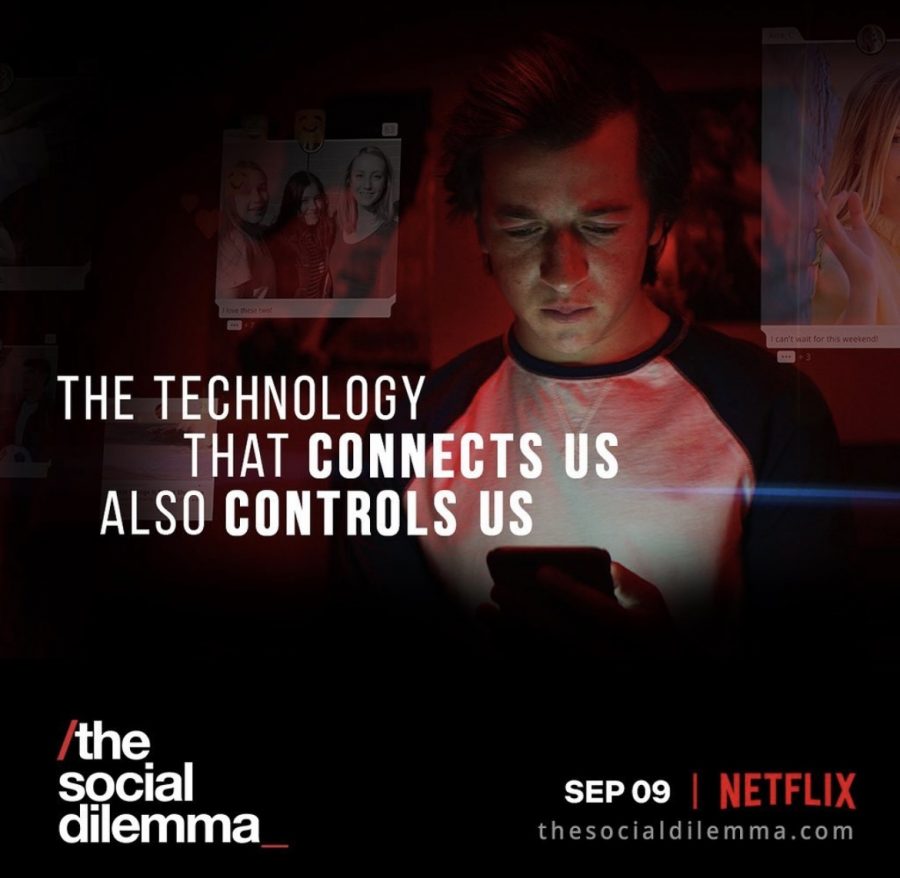On Jan. 26, 2020, the Netflix documentary “The Social Dilemma” received 38 million views within the first four weeks of streaming. The following year, it went on to win two Emmy awards.
“The Social Dilemma” gained its widespread popularity through its content and its credibility: an exposè highlighting the manipulation and degradation of social media, told by the very people who created it.
The film grew increasingly disturbing as the addictive nature of social media was revealed to be blatantly purposeful.
The idea lies in manipulating a user’s psychology to be used as a weapon against them.
These social platforms — whether it be Twitter, Google, Facebook or Instagram — then utilize their knowledge of a user’s personality and behavior to deliver content and advertisements that coincide with these psychological findings.
In doing so, the social platform succeeds at maximizing the amount of time the user spends on the screen.
Now, why does this matter? Because we get hooked on screen time.
In turn, we have become a society distracted and controlled by these addictive technological strategies, creating an entire generation that is less connected, more anxious and more depressed, according to the documentary.
The scariest part? We are that generation.
Today’s college students and recent grads mark the first onset of kids who were exposed to social media in middle school. This marks an 11-year progression of technological manipulation — an advancement that has increased self-harm and suicide in young girls.
According to Johnathan Haidt, self harm in girls ages 10-14 has increased by 189% since 2009, while suicide rates for girls in the same age group has increased by 151% since 2009.
Our beauty standards have become unattainable, our self-worth has been determined by likes and our lives have become a public display of a false reality.
We have become, without even realizing it, the lab rats for tech companies seeking exponential wealth.
In watching “The Social Dilemma,” those who played a hand in the creation of these social platforms are relentlessly begging us to take these facts seriously.
It’s not a joke, it’s not a hoax; it’s our only option.
Why?
Because, according to the documentary, social media is driving our generation toward eating disorders, plastic surgery, depression and isolation. Beyond the individual level, social media is driving our entire country apart.
The political polarization we see in America today is a direct result of social media and its manipulative algorithms.
In 2018, an Internal Facebook Report found “64% of the people who joined extremist groups on Facebook did so because the algorithms steered them there.”
The algorithms are also steering anti-vaxxers toward disinformation about health issues related to COVID-19 vaccines, as well as directing climate-deniers toward sources who preach only about the climate hoax.
A direct quote from “The Social Dilemma” states “when you go to Google and type in ‘climate change is..,’ you are going to see different results depending on where you live.”
And we wonder why America has become so politically divided.
These algorithms are pushing people on both ends of the political spectrum toward the relative extreme, leaving a massive hole in the middle where peaceful politics used to exist.
But here’s the catch: if social media has the power to start with us, then it has the power to end with us, too.
All it takes is signing off. By using this would-be screen time for rich, personal engagement, we become less profitable for corporations who rely on our time spent on the screen. As a result we can begin to align with and advocate for a future of humane technology where social media coincides with humanity’s best interests.
When we think about what this means, we envision a process in which the fundamental business strategy of technology is completely redesigned. And one that is not only redesigned but fully eradicated.
This does away with the manipulative, addictive and polarizing practices used by tech companies and replaces them with human-sensitive, value-centric policies that rewrite what it means to be social on media.
When asked if he thinks we’re going to get to this point, Tristan Harris of “The Social Dilemma” replied in only three words: “We have to.”
It’s our only option, and we must start now.
Lindsey Anderson is a senior studying rhetoric and writing.







